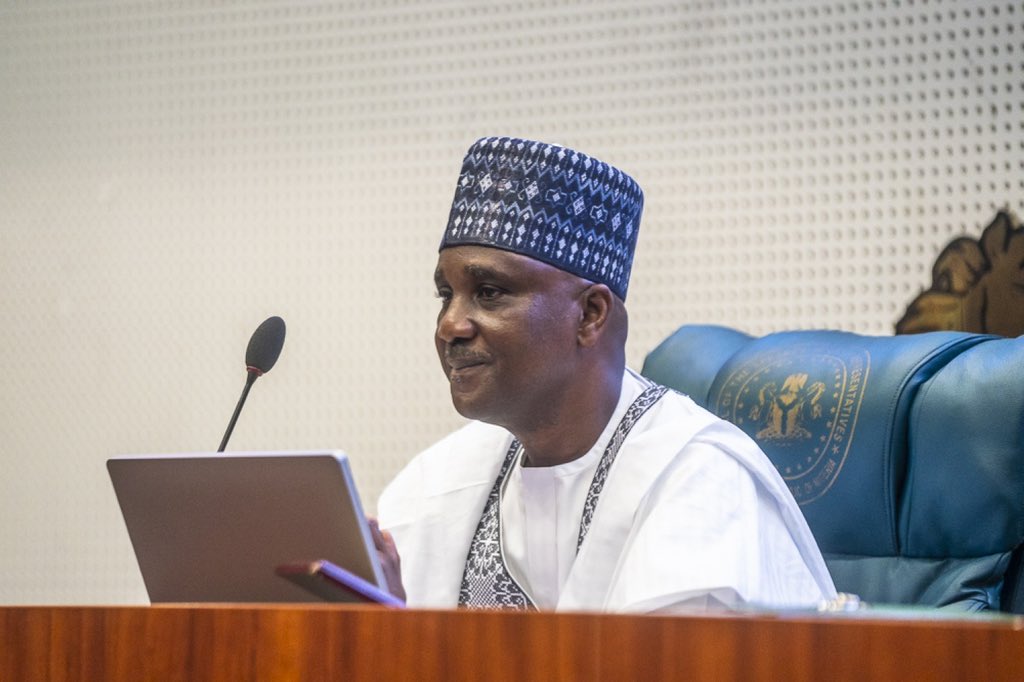Nigeria’s tax collection system faces scrutiny after the Speaker of the House of Representatives, Tajudeen Abbas, declared the country had the lowest Value Added Tax (VAT) collection efficiency in Africa.
Abbas made the statement during a speech on economic transformation strategies, highlighting the inefficiency as a significant weakness in the nation’s fiscal system.
This was while delivering a keynote address at the opening of a two-day retreat for members of the House, in Abuja.
He said, ”Comparatively, Nigeria’s efficiency in collecting Value Added Tax is the lowest among its African peers, indicating significant inefficiencies in its tax system.
“This trend of low tax revenue, coupled with a continued dependency on the increasingly unstable oil revenue, presents a major risk to Nigeria’s fiscal sustainability. It also highlights an important area for potential reform to boost revenue and stabilise the country’s economic framework.
“The lack of growth in non-oil revenue sources and the volatile nature of oil income underscore the urgent need for Nigeria to diversify its revenue base and enhance its fiscal management to ensure economic stability and growth.”
The Speaker also expressed delight that the legislative retreat was taking place “at a point in our nation’s economic landscape when the current administration is diligently implementing policies and initiatives to steer our economy towards recovery, growth, and sustainable development.”
He continued, “As a critical arm of government, the legislature has a crucial role in shaping our nation’s economic transformation and development.
“Part of our law-making powers is the authority to enact tax reforms and strengthen resource governance mechanisms. By designing and implementing progressive tax policies, we strive to ensure a fair and efficient tax system that boosts revenue while fostering economic growth and equity.
READ ALSO: NCAA suspends three private jet operators for engaging in commercial flights
Advertisement“This involves not only broadening the tax base and simplifying tax codes but also enhancing compliance and minimising loopholes that benefit only the wealthy.
“Furthermore, the legislature’s oversight function is central in the governance of natural and financial resources. It ensures transparency and accountability in the exploitation and management of resources, which is essential for sustainable development.”
This revelation raises concerns about Nigeria’s dependence on volatile oil revenue. The low VAT collection suggests a broader issue with tax compliance and enforcement. Speaker Abbas indicated the House of Representatives was committed to working with the government to address this challenge.
Some potential reasons behind the low VAT collection include: Informal sector: A large portion of Nigeria’s economy operates informally, making it difficult to track and collect VAT; Weak tax administration: Inefficiencies within the tax collection agencies could be hindering effective enforcement and Tax evasion: Businesses and individuals may be deliberately avoiding paying VAT.
The consequences of low VAT collection are far-reaching. It limits the government’s ability to fund critical public services like education, healthcare, and infrastructure development. Additionally, the overreliance on oil revenue exposes Nigeria to fluctuations in global oil prices.
The House of Representatives’ commitment to tax reform offers a glimmer of hope. Possible solutions could include: Digitalization of tax collection: Utilizing technology to streamline tax administration and improve efficiency; Expanding the tax net: Bringing more businesses and individuals within the formal tax system; Strengthening tax enforcement: Cracking down on tax evasion and improving compliance.
The path forward requires a multi-pronged approach. Collaborating with stakeholders, including the private sector and civil society, will be crucial for successful tax reform.
If Nigeria can improve its VAT collection efficiency, it can unlock significant revenue streams for sustainable development and reduce its vulnerability to volatile oil prices. Only time will tell if the House of Representatives’ commitment translates into concrete actions that strengthen Nigeria’s fiscal health.

 Business6 days ago
Business6 days ago
 Inspirational6 days ago
Inspirational6 days ago
 Politics5 days ago
Politics5 days ago
 Featured5 days ago
Featured5 days ago
 Business5 days ago
Business5 days ago
 Business7 days ago
Business7 days ago
 Latest5 days ago
Latest5 days ago
 Education5 days ago
Education5 days ago




